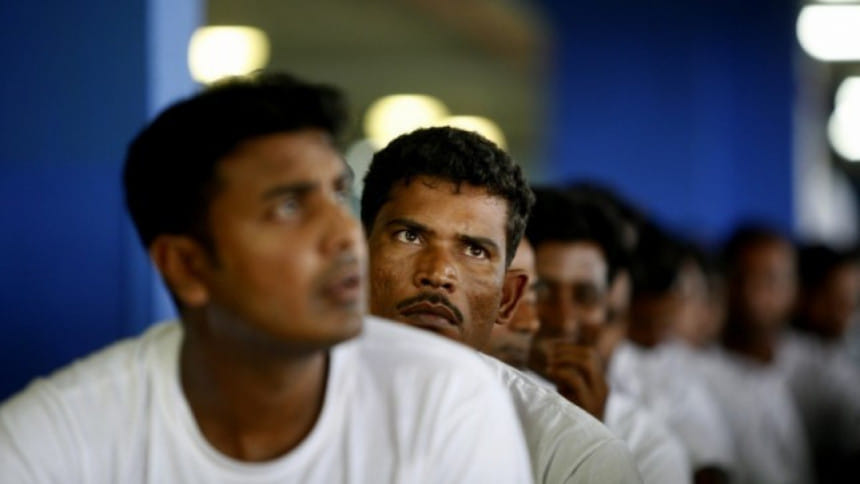Migrant Integration: Most returnees find employment

As much as 65 percent of the returnee migrants in Bangladesh have managed to find employment, found a study by the International Organisation for Migration.
The share of returnees that are employed are lower for both forced returnees (31 percent) and female returnees (19 percent), said the report styled "Comparative Reintegration Outcomes between Forced and Voluntary Return and through a Gender Perspective".
The study is coordinated by the EU-IOM Knowledge Management Hub (KMH) with the financial support of the EU and conducted by the Maastricht Graduate School of Governance of Maastricht University, the Netherlands.
Overall, female migrants returning to their countries of origin had more difficulty than men reintegrating long-term into the community, the IOM said.
Women reported more challenges in accessing employment and training opportunities as well as healthcare services, often following abuses and exploitation during their migration journey, said the study, which was unveiled on Tuesday.
The surveyed Bangladeshi respondents include 84 percent males and 16 percent females.
Of the 1,318 surveyed, 39 male migrants and 117 female migrants were forced to return to Bangladesh, while the rest were voluntary returnees.
The returnees received main types of reintegration assistance including counselling and medical support, microbusiness, material assistance and financial literacy training.
Some 21 percent of the returnees said they were in debt, while 39 percent perceive they have poor access to employment and training and 8 percent reported having poor access to housing.
Only 48 percent are satisfied with the quality of housing with 10 percent reported being very dissatisfied with housing conditions.
As much as 70 percent of the respondents said they are satisfied with their current economic situation, whereas 35 percent of the forced returnees and 48 percent of female returnees reported being satisfied.
In terms of children's enrolment in school, 3 percent reported poor access to education, with 18 percent unable to send all children to school.
Some 2 percent of the returnees are yet to get the national identity (ID) card and 12 percent reported poor quality of healthcare available.
In terms of access to social services, 58 percent of the forced returnees reported poor access to justice and law enforcement.
In terms of sense of physical security and experiences of domestic conflict, discrimination and distress, most respondents (94 percent) reported feeling safe in their current location.
However, 41 percent of the people reported experiencing signs of psychological distress since returning to Bangladesh, and 17 percent reported experiencing discrimination with a higher prevalence among forced returnees (44 percent) and female returnees (43 percent).
And yet, 81 percent of the returnees feel that they would be able to permanently live in Bangladesh.
Of those indicating a desire to migrate again, 97 percent cited it as a need due to inability to establish sustainable living.
Migrants returned mostly from Libya (25 percent), Greece (13 percent), Italy (10 percent), Germany (10 percent) and Saudi Arabia (6 percent).

 For all latest news, follow The Daily Star's Google News channel.
For all latest news, follow The Daily Star's Google News channel. 



Comments